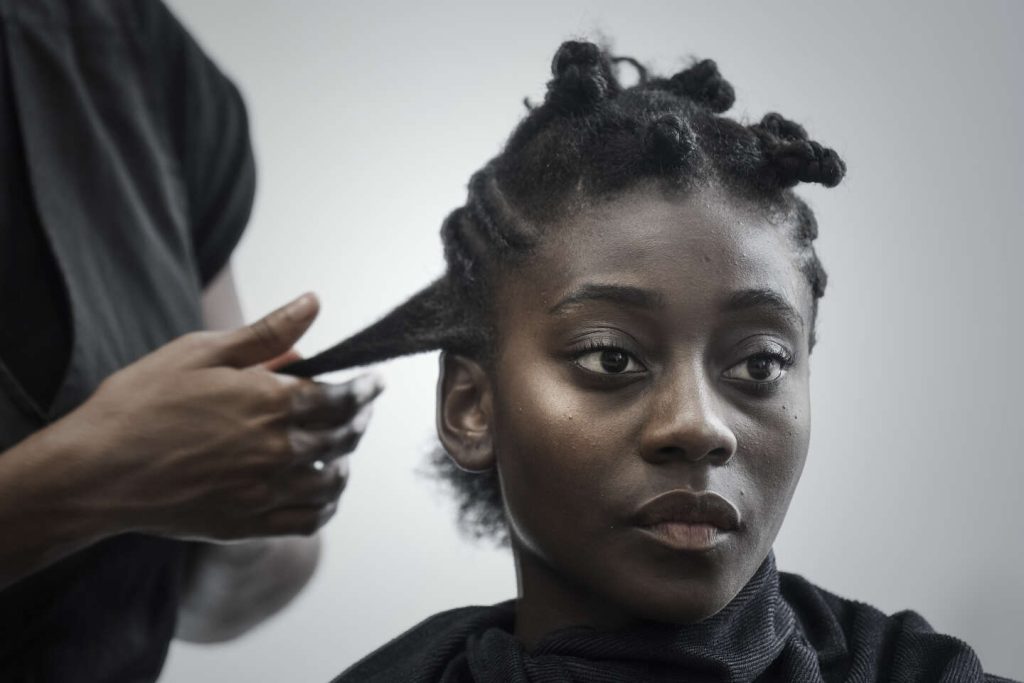In October 2017, Kenza Bel Kenadil shares her experiences with the discrimination she faced due to her hair texture, which led her to begin straightening her hair at the age of 6. She endured thirteen years of straightening through chemical processes in order to avoid bullying and harassment at school and in the workplace. Kenza Bel Kenadil is now a vocal advocate against hair discrimination and has vowed to embrace her natural hair. She has a large following on Instagram, where many non-white women turn to her to share their own experiences of employer demands regarding their hair choices.
To address these types of experiences, Deputy Olivier Serva introduced a bill to recognize hair-related discrimination in the French legal code. The bill aims to include discrimination based on “haircut, color, length, or texture” in the list of punishable discriminations in the labor code, penal code, and general civil service code. The bill was passed by 44 votes to two in the National Assembly but faces an uncertain future in the Senate. Serva believes that this law will allow victims of hair discrimination to have legal recourse and protect their right to maintain their natural hair.
The lack of explicit acknowledgment of racism in the French legislation regarding hair discrimination has been noted by experts. Daphne Bédinadé, a doctoral student in ethnology and social anthropology, points out that the omission of racism in the legislation reflects a broader issue in French society. The pressure to conform to mainstream standards of beauty often leads to discrimination against people with highly discriminated-against hair, predominantly black women. This discriminatory mindset stems from a colonial and racist perception of black bodies that deems certain hairstyles as unprofessional or dirty.
Despite the societal pressure to conform to Eurocentric beauty standards by straightening their hair, many women are beginning to embrace their natural hair. Aude Livoreil-Djampou, owner of a Parisian salon specializing in curly and kinky hair, notes a decrease in requests for straightening treatments due to increased awareness of the harmful effects of such processes. Influencers like Fatou N’Diaye have chosen to embrace their natural hair, breaking away from the legacy of colonialism that villainized natural black hair. However, expressing pride in one’s natural hair can still be risky in professional settings, potentially leading to job discrimination or difficulty in securing housing.
While legislation like Olivier Serva’s bill aims to address and prevent hair discrimination, the deeply entrenched societal biases and pressures related to hair texture and style may persist. The fight against hair discrimination is intertwined with broader issues of systemic racism and societal beauty standards. Empowering individuals to embrace their natural hair and challenging discriminatory norms requires a shift in societal perceptions and institutional practices. The stories and experiences of individuals like Kenza Bel Kenadil, Fatou N’Diaye, and countless others highlight the importance of recognizing and confronting hair discrimination in all its forms.


